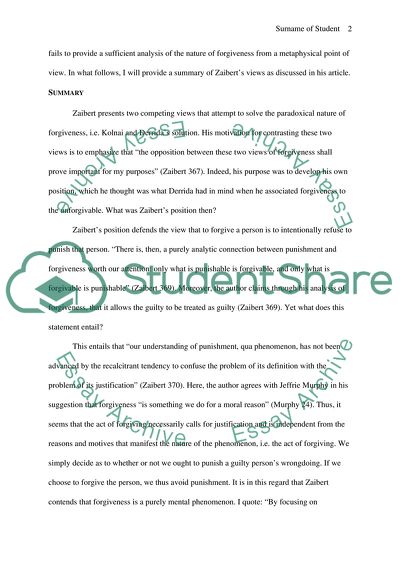Cite this document
(“Metaphysical implications of forgiveness Essay Example | Topics and Well Written Essays - 1500 words - 1”, n.d.)
Metaphysical implications of forgiveness Essay Example | Topics and Well Written Essays - 1500 words - 1. Retrieved from https://studentshare.org/miscellaneous/1576429-metaphysical-implications-of-forgiveness
Metaphysical implications of forgiveness Essay Example | Topics and Well Written Essays - 1500 words - 1. Retrieved from https://studentshare.org/miscellaneous/1576429-metaphysical-implications-of-forgiveness
(Metaphysical Implications of Forgiveness Essay Example | Topics and Well Written Essays - 1500 Words - 1)
Metaphysical Implications of Forgiveness Essay Example | Topics and Well Written Essays - 1500 Words - 1. https://studentshare.org/miscellaneous/1576429-metaphysical-implications-of-forgiveness.
Metaphysical Implications of Forgiveness Essay Example | Topics and Well Written Essays - 1500 Words - 1. https://studentshare.org/miscellaneous/1576429-metaphysical-implications-of-forgiveness.
“Metaphysical Implications of Forgiveness Essay Example | Topics and Well Written Essays - 1500 Words - 1”, n.d. https://studentshare.org/miscellaneous/1576429-metaphysical-implications-of-forgiveness.


